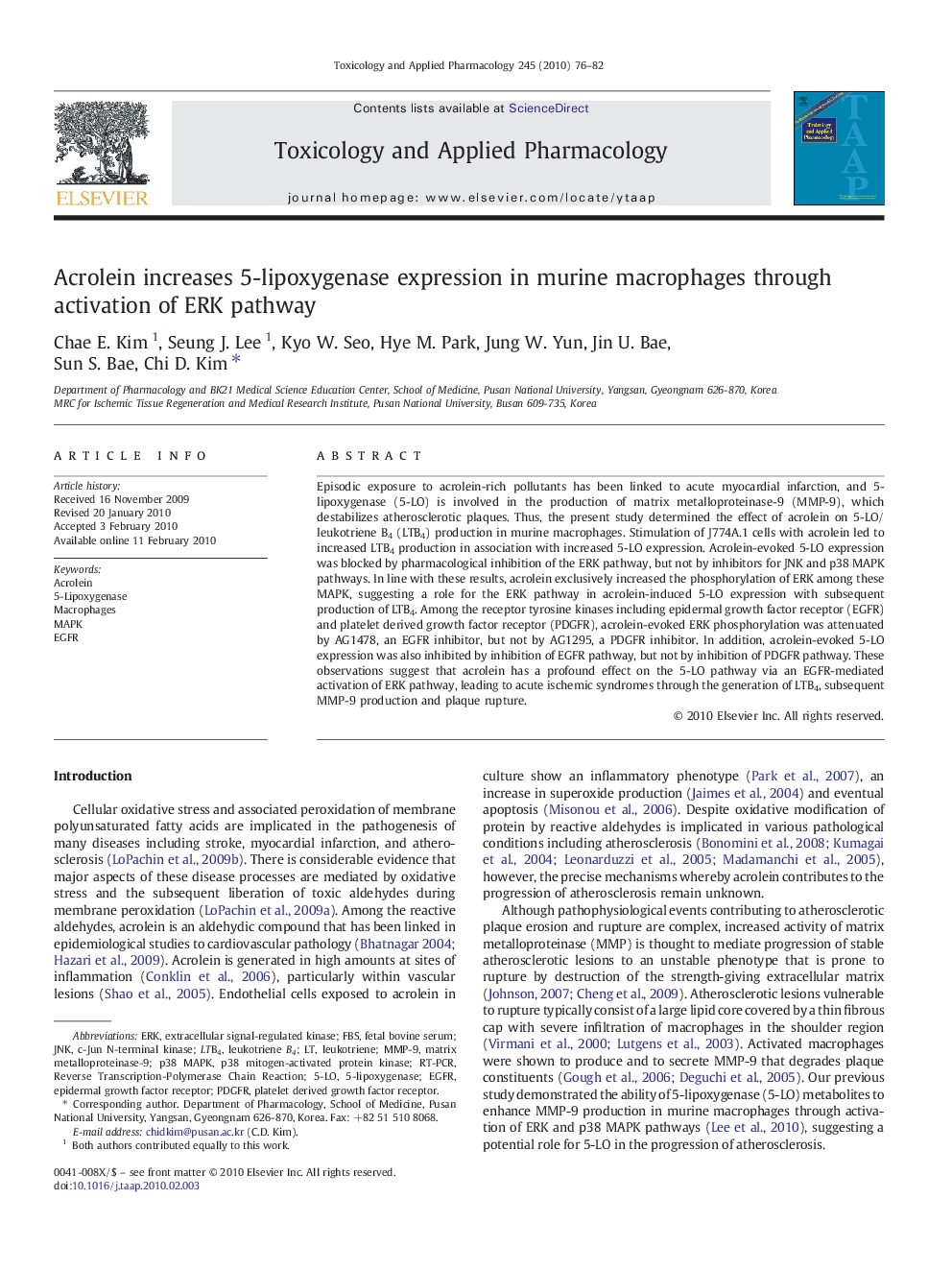| Article ID | Journal | Published Year | Pages | File Type |
|---|---|---|---|---|
| 2570312 | Toxicology and Applied Pharmacology | 2010 | 7 Pages |
Episodic exposure to acrolein-rich pollutants has been linked to acute myocardial infarction, and 5-lipoxygenase (5-LO) is involved in the production of matrix metalloproteinase-9 (MMP-9), which destabilizes atherosclerotic plaques. Thus, the present study determined the effect of acrolein on 5-LO/leukotriene B4 (LTB4) production in murine macrophages. Stimulation of J774A.1 cells with acrolein led to increased LTB4 production in association with increased 5-LO expression. Acrolein-evoked 5-LO expression was blocked by pharmacological inhibition of the ERK pathway, but not by inhibitors for JNK and p38 MAPK pathways. In line with these results, acrolein exclusively increased the phosphorylation of ERK among these MAPK, suggesting a role for the ERK pathway in acrolein-induced 5-LO expression with subsequent production of LTB4. Among the receptor tyrosine kinases including epidermal growth factor receptor (EGFR) and platelet derived growth factor receptor (PDGFR), acrolein-evoked ERK phosphorylation was attenuated by AG1478, an EGFR inhibitor, but not by AG1295, a PDGFR inhibitor. In addition, acrolein-evoked 5-LO expression was also inhibited by inhibition of EGFR pathway, but not by inhibition of PDGFR pathway. These observations suggest that acrolein has a profound effect on the 5-LO pathway via an EGFR-mediated activation of ERK pathway, leading to acute ischemic syndromes through the generation of LTB4, subsequent MMP-9 production and plaque rupture.
